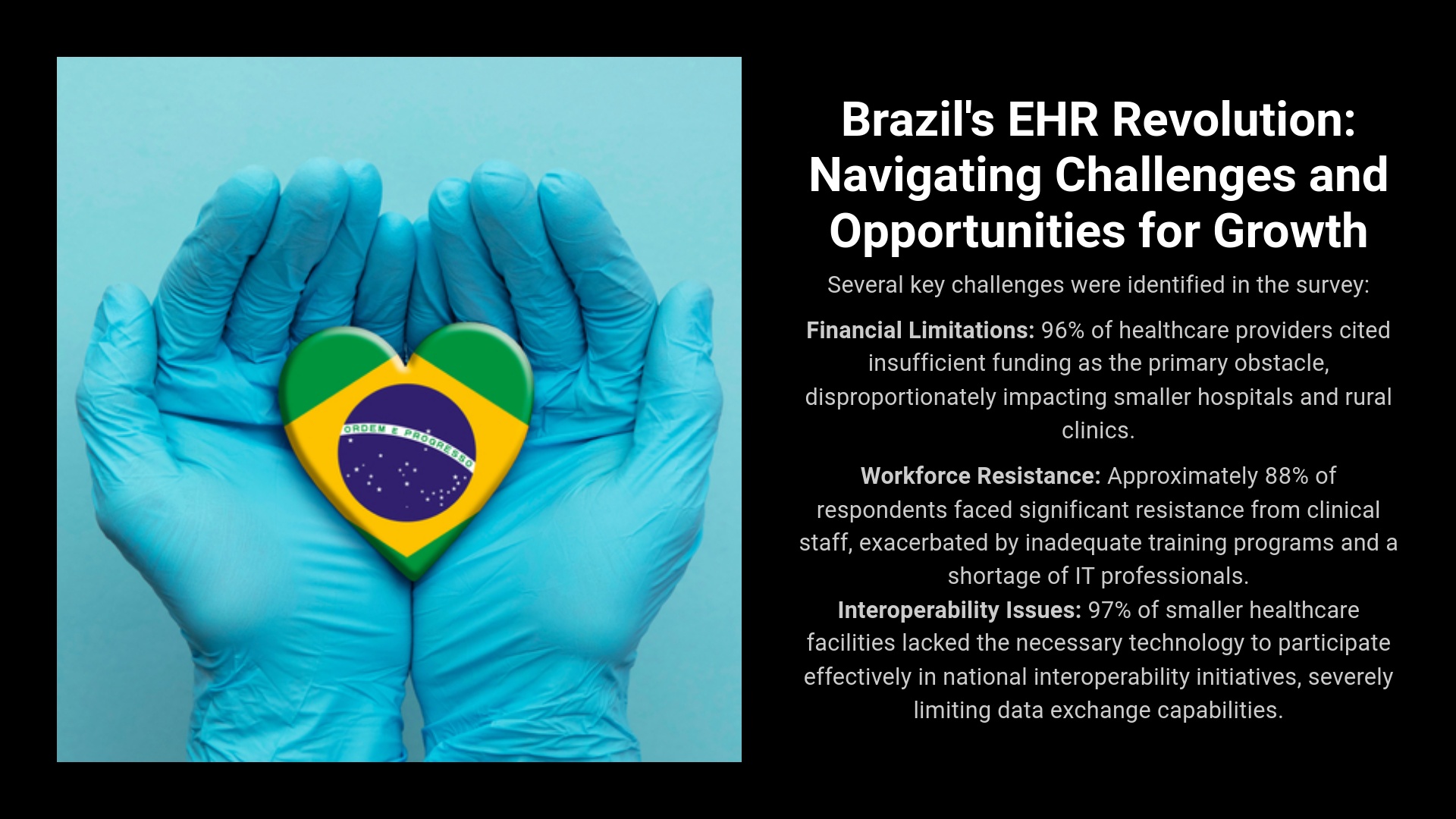Financial News
Brazil's Digital Healthcare Boom Faces Critical Hurdles, Reveals Black Book Research
New survey insights from Brazilian healthcare leaders highlight financial, regulatory, and interoperability barriers limiting EHR expansion despite significant investments.
MIAMI, FLORIDA / ACCESS Newswire / April 15, 2025 / Despite substantial advancements and increasing investments, Brazil's Electronic Health Record (EHR) sector faces critical obstacles, according to independent research conducted by Black Book Research. Interviews with 203 Brazilian hospital and physician organizations and 24 government healthcare IT policy officials revealed a complex mix of optimism and concern regarding digital healthcare initiatives.
Market Growth Fueled by Urban Centers
Brazil's EHR market, currently valued at approximately $1.5 billion, is expected to rise to $2.0 billion by 2030, representing a 5.0% compound annual growth rate (CAGR). However, the research highlighted that growth is predominantly concentrated in major urban centers and larger hospital networks, where 36% of respondents reported significant investments in advanced digital health tools like telemedicine and AI-based diagnostics.
Regulatory Progress and Persistent Gaps
While Brazil is progressively aligning its regulatory framework with international standards, critical gaps remain. Fully, 100% of government officials surveyed acknowledged the fragmented oversight due to the absence of a centralized digital health authority. The General Data Protection Law (LGPD), although instrumental in enhancing data security, adds complexity, with 96% of providers expressing concerns about compliance and its impacts on operations.
The SUS Digital Programme, implemented by all Brazilian states and 70% of municipalities, was cited by 79% of respondents as a positive step toward national digital integration, though its effectiveness remains inconsistent due to varying levels of infrastructure readiness.
Several key challenges were identified in the survey:
Financial Limitations: 96% of healthcare providers cited insufficient funding as the primary obstacle, disproportionately impacting smaller hospitals and rural clinics.
Workforce Resistance: Approximately 88% of respondents faced significant resistance from clinical staff, exacerbated by inadequate training programs and a shortage of IT professionals.
Interoperability Issues: 97% of smaller healthcare facilities lacked the necessary technology to participate effectively in national interoperability initiatives, severely limiting data exchange capabilities.
Vendor Successes and Market Dynamics
Respondents identified several leading EHR vendors successfully navigating Brazil's healthcare market:
MV Sistemas: Reported by 68% of respondents as the most adaptable local solution across diverse healthcare settings.
Philips Tasy: Cited by 63% for strong integration and functionality, particularly in large hospitals.
Totvs: Gained recognition from 57% of mid-sized providers for affordability and compliance features.
Oracle Cerner: International vendor noted by 49% of respondents for robust interoperability solutions tailored to Brazil's healthcare complexities.
Emerging local vendors such as Medcloud and Clinica do Futuro were praised by just over half of ambulatory care providers for their intuitive interfaces and efficient LGPD compliance.
"Brazil's journey toward comprehensive digital healthcare is at a pivotal point," said Doug Brown, Founder of Black Book. "Our research shows clear enthusiasm among Brazilian healthcare leaders and policymakers, yet significant barriers remain. Coordinated action across funding, regulatory clarity, and interoperability is essential. Brazil has the potential to become a regional leader in digital healthcare, provided these systemic issues are strategically addressed."
Regionally, Brazil is ahead in implementing AI and telehealth solutions, as acknowledged by 60% of participants. However, when compared to countries such as Mexico and Colombia, 81% of respondents pointed to Brazil's substantial rural-urban digital divide and infrastructural inadequacies as significant limitations.
Access Comprehensive Insights
Stakeholders interested in a deeper understanding of Brazil's digital healthcare landscape can access "The 2025 Black Book of Global Healthcare IT," a 600-page comprehensive report, available free of charge on the Black Book Research website. This resource extensively covers Brazil's EHR adoption trends, interoperability initiatives, and opportunities for digital transformation.
To access the full report, visit: https://blackbookmarketresearch.com/register-for-the-black-book-of-global-healthcare-it-2025-report.
About Black Book™
Black Book™ is a premier independent provider of technology insights and market research, empowering healthcare providers, technology buyers, and investors with essential data-driven analysis for strategic decision-making.
Contact Information
Press Office
research@blackbookmarketresearch.com
8008637590
SOURCE: Black Book Research
View the original press release on ACCESS Newswire

Quotes delayed at least 20 minutes.
By accessing this page, you agree to the following
Privacy Policy and Terms and Conditions.



